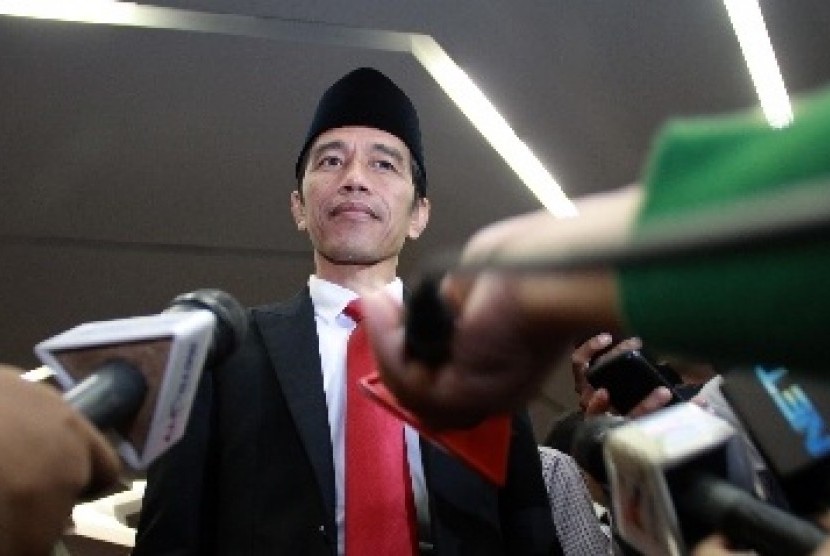REPUBLIKA.CO.ID, BEIJING -- President Joko Widodo said he wanted Indonesia-China comprehensive strategic partnership to be more concrete and implemented for the benefit of the peoples of the two countries.
"Indonesia and China already have relations since in the past hundreds of years. This is an asset for the two countries to build a comprehensive strategic partnership. Ahead, I want this comprehensive strategic partnership to become more concrete," Joko Widodo said when he had talks with Chinese President Xi Jinping here on Sunday (9/11).
In the meeting which was held in the People's Great Hall of China, President Joko Widodo, who is better known as Jokowi, was accompanied by Coordinating Minister for Economic Affairs Sofyan Djalil, Cabinet Secretary Andi Widjajanto and Regional Representative Council (DPD) Chairman GKR Hemas.
President Jokowi said that if the comprehensive strategic partnership is made more concrete and implemented, it would benefit the two countries, particularly their peoples.
On the occasion President Jokowi also expressed his gratitude for being invited to the 22nd meeting of the Asia Pacific Economic Cooperation (APEC) summit which will be held on November 10-11, 2014.
President Jokowi also invited President Xi Jinping to attend the 60th anniversary of the Afro-Asian Conference in Indonesia.
Indonesia and China established a strategy partnership through an agreement signed by then Indonesian President Susilo Bambang Yudhoyono and then Chinese President Hu Jintao on April 25, 2005.
Both countries agreed to raise their strategic partnership agreement to comprehensive partnership agreement when President Xi Jinping visited Indonesia in October 2013.
China's foreign exchange reserves now amount to US$3.5 billion. But China's investment in Indonesia up to 2012 only reached US$2.02 billion, according to data available at the China-ASEAN Business Council.
Indonesia could actually become an interesting place for foreign investors, particularly from China. This is because Indonesia as a largest country in Southeast Asia with a gross domestic product (GDP) reaching US$1 trillion has a positive economic growth, good investment climate and relative political stability.
In the trade sector, Indonesia-China's two-way trade up to 2012 was recorded at US$66.6 billion and is expected to increase to US$80 billion in 2015.
This amount is relatively small if compared with the China and Malaysia (the second country to be visited by Xi Jinping) trade target at US$100 billion in the same period.
In the tourism sector, Indonesia absorbed a small number of visitors from the Chinese market.
The United Nations World Trade Organization (UNWTO 2013) placed China as the first source of tourism market with expenditure valued at US$102 million in 2012, or an increase of 40 percent from 2011 which was only US$73 million.
In the meantime, the number of Chinese tourists making overseas trips in 2000 reached 10 million people and this number increased to 83 million in 2012.
The number of those who visited Indonesia in 2012 was only 726,088, lower then the number of Chinese visitors to Malaysia which totaled 1,56 million and Thailand 2.7 million in the same year.


